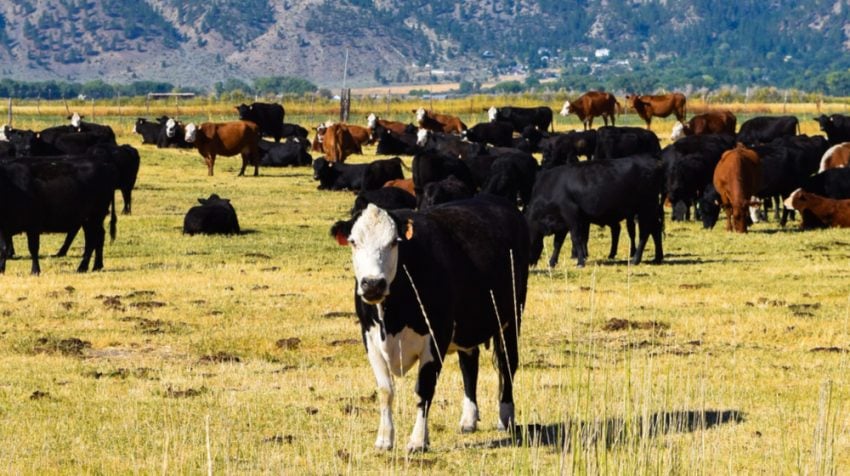
When a 2003 Chinese ban on American beef was lifted recently , ranchers in the U.S. were cautiously optimistic. There is a possibility the move is designed to tweak China’s beef trade with Australia, but also a huge opportunity if the Chinese market opens up for U.S. ranchers.
Considerations Before Investing in a Cattle Ranch
Small Business Trends spoke with Buzz Tatom. He’s a Partner/Ranch Sales Associate at Venture West Ranches in Montana. Here are 10 things to know before investing in a cattle ranch.
Take a Look at the Land Support Capability
Simply put, you need to know what the land will support. Most important here is animal carry capacity. It’s all about the number of cattle that can graze on the property without destroying it.
Be Clear on the Agricultural/Recreational Value
“A big part of the value that’s being represented is recreational,” Tatom says. Buying a ranch means knowing the importance of the term agricultural value or the land that can be irrigated otherwise and used for cattle. Canyons and the like are recreational. You need to look at how much of each type is available.
Follow Your Rights for Water
Making sure you understand your rights about the water that flows through your property is critical. Having senior water rights that are current means being assured of a steady flow. If you’re further down a list, someone higher up can change the amount of water you get for important aspects like irrigation.
Know Your Mineral Rights
Buying a cattle ranch means knowing who owns what’s above and below the surface. If you only have what’s called surface rights, another party can dig up your ranch to get at the minerals underneath.
Tatom explains why mineral rights are important.
“Without them, someone can literally walk in on you the next day and drill wells on your property.”
Understand Access to the Property
Are there easements running through the land you’re interested in? Does any part of your land cross a neighbor’s? It’s good to know if there are any extenuating circumstances like these before you buy.
Have the Soil Tested
Groundwater contamination could ruin the entire deal if it’s bad enough. Find out if there were any dump sites in the area and hazardous wastes buried on the property.
Get the Skinny from the Locals
“I always encourage clients to spend some extra time in local cafés and shops asking people’s opinions about the ranch,” Tatom says. “You’ll be surprised at some of the things people will say about present owners.”
Check the Neighbors Out
You’ll have dealings with the people next door, even if you don’t see them all the time. Fences will need to be mended and mineral rights and a host of other issues looked after. Getting to know the neighbors can make bigger decisions like wildlife management easier.
Take a Look at Tax Status
When you buy a ranch, it should come with some exemptions that are tied to your tax status. There are agricultural exemptions and wildlife exemptions that you want to look into. It’s critical to find out what you need to do to keep these active.
Look at your Financing Options
Finally, it’s important to know what your best options are for paying for your new ranch.Everything is easiest if you’re buying a place with cash. Otherwise you’re going to need to find a qualified agricultural lender to help steer the purchase to a conclusion.
[Source”timesofindia”]



